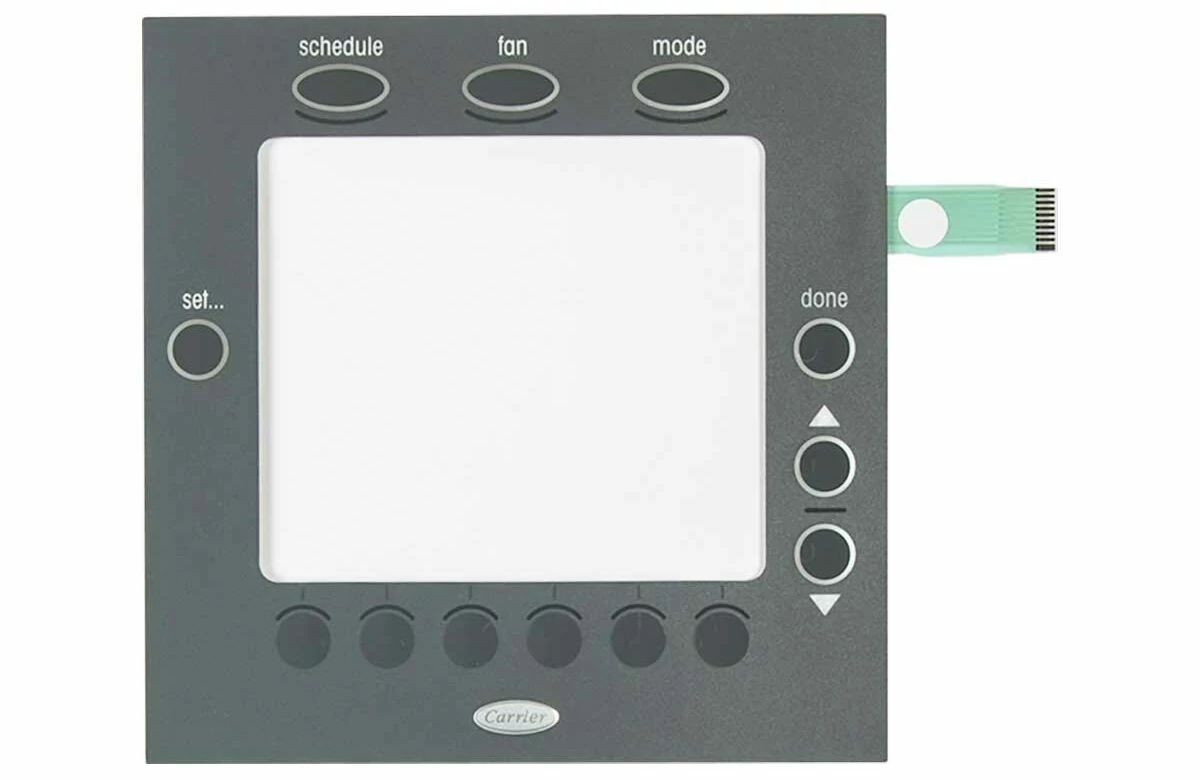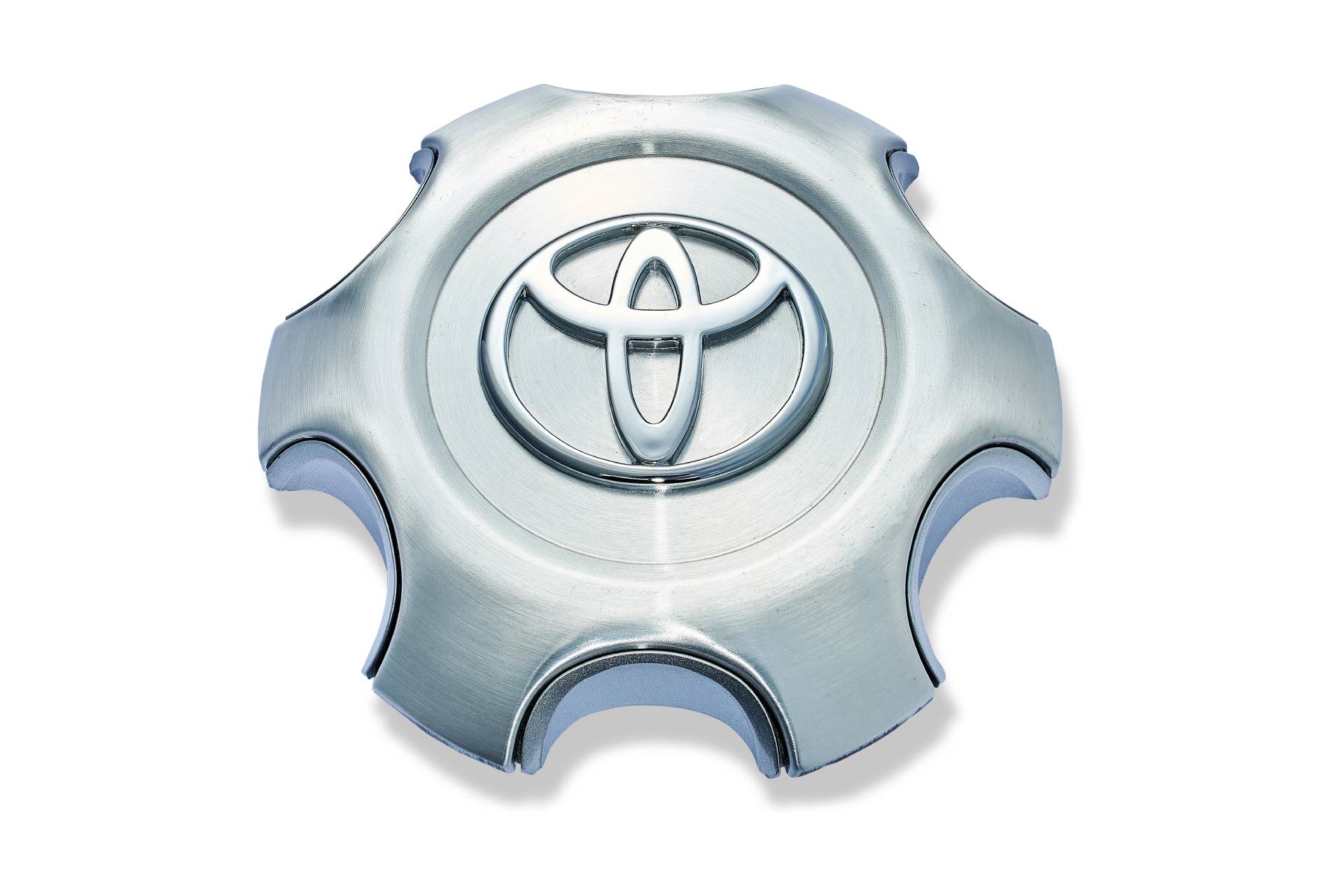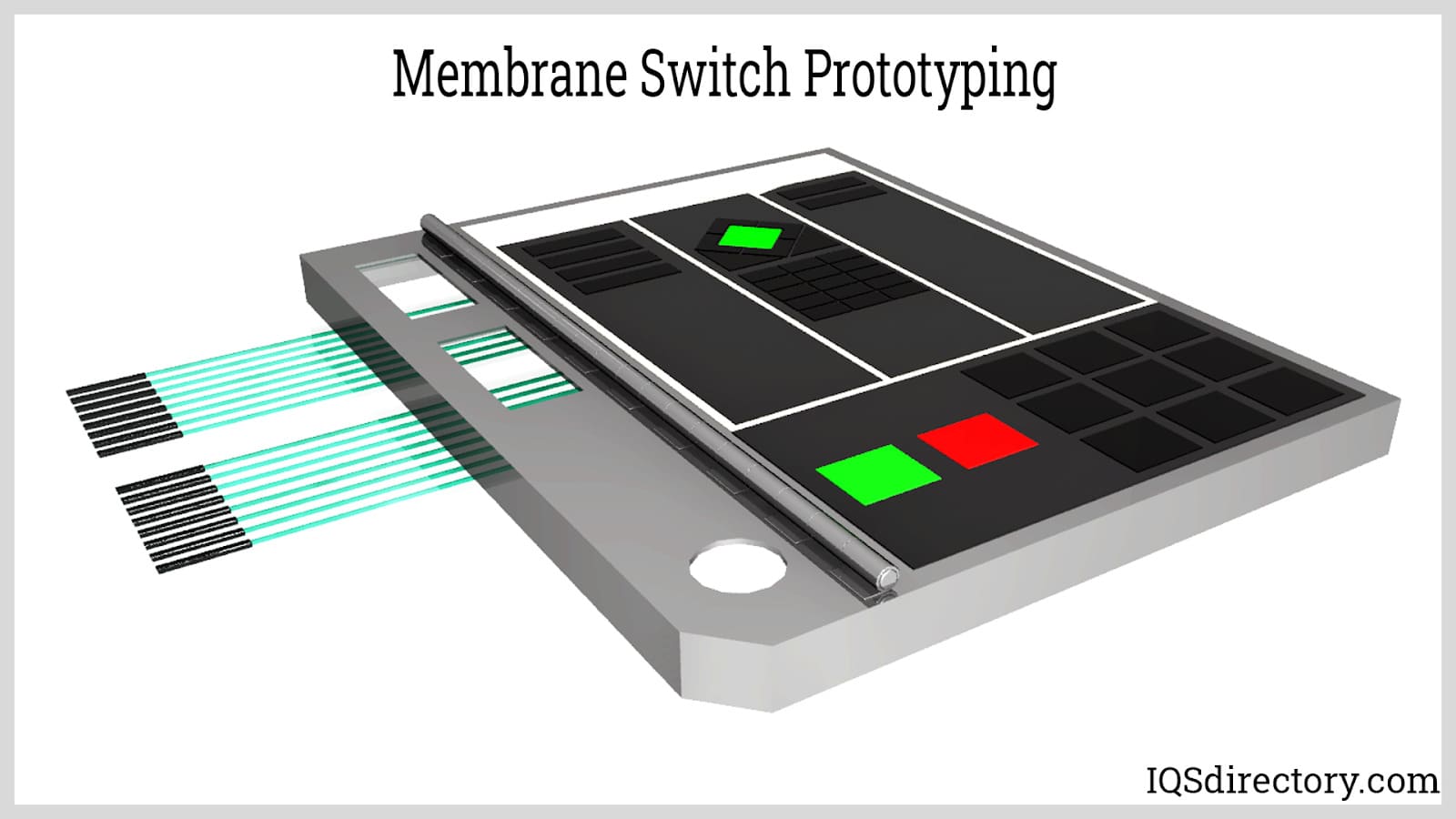A Comprehensive Guide to Membrane Switches for Product Designers
Wiki Article
Comprehending the Relevance of Membrane Switches in Interface
Membrane buttons are integral elements in the style of reliable interface, promoting not just performance but also improving visual allure and customer interaction. Their one-of-a-kind functions, such as resistance to adjustable layouts and ecological variables, make them ideal for a varied array of applications across multiple industries. As we discover the different benefits and future patterns related to Membrane modern technology, it comes to be clear that these buttons are greater than simply elements; they stand for a convergence of innovation and practicality. The implications of this technology on user experience deserve checking out better.What Are Membrane Buttons?

The spacer layer, which contains glue buildings, permits for the separation of the circuit layer from the overlay, guaranteeing that the switch continues to be in a non-activated state till pushed. When stress is put on the overlay, it presses the spacer layer, linking the gap and completing the circuit in the underlying layer. This style not only minimizes the physical area needed for traditional mechanical switches yet additionally boosts the longevity of the tool, as Membrane switches are typically resistant to dust, wetness, and other ecological elements.
Commonly located in applications ranging from customer electronics to clinical gadgets, Membrane buttons are indispensable to modern-day innovation, giving a easy to use and efficient interface that straightens with modern style requirements.
Advantages of Membrane Buttons
While various button technologies exist, Membrane Switches offer unique benefits that make them especially desirable in various applications. One of the main advantages of Membrane switches is their portable design, which enables for space-saving executions in devices where realty is limited. Their slim profile not only improves visual allure but likewise facilitates light-weight construction.An additional substantial benefit is their resistance to environmental aspects. Membrane buttons are typically sealed against dampness, dust, and pollutants, making them excellent for usage in demanding environments, such as clinical gadgets and industrial devices. This resilience prolongs the life expectancy of the switch, minimizing maintenance prices and enhancing dependability.
Additionally, Membrane switches can be personalized to fulfill certain design needs, incorporating special graphics and colors that enhance user communication. Their tactile comments choices can likewise be tailored to give a satisfying user experience. Additionally, Membrane switches are affordable, especially in high-volume applications, as they can be generated successfully.
Applications in Various Industries

In the consumer electronic devices field, Membrane switches prevail in devices such as microwaves, cleaning equipments, and remote controls. Their tactile responses and visual choices improve customer experience while offering a smooth, contemporary look. Furthermore, vehicle makers use Membrane switches in dashboard controls and infotainment systems, where space is limited, and user engagement is crucial.
Furthermore, the industrial sector leverages Membrane buttons in control panels for equipment and tools, enabling user-friendly procedure in typically extreme atmospheres. Their resistance to chemicals and moisture guarantees longevity and reliability in these applications. On the whole, the flexibility of Membrane Switches contributes substantially to their prevalent usage, making them vital in numerous technical domain names.
Layout Factors To Consider for Membrane Switches

When creating Membrane buttons, a number of key considerations have to be thought about to make sure ideal functionality and individual experience. To start with, the choice of products is critical; selecting durable, top quality substratums can improve the switch's durability and resistance to environmental aspects such as moisture and temperature level changes.
Secondly, the layout of the graphic overlay must prioritize clearness and convenience of use. Symbols and text should be understandable, and the design needs to help with user-friendly communication (membrane switches). Furthermore, responsive responses is vital; including a responsive dome or other systems can improve the individual experience by giving physical confirmation of activation
One more important aspect is the switch's electrical efficiency. Designers should make certain that the conductive traces are correctly made to minimize resistance and stay clear of signal disturbance. This involves evaluating the needed actuation read this post here pressure and ensuring compatibility with the digital components they will user interface with.

Future Fads in Membrane Technology
As innovation proceeds to advance, Membrane buttons are positioned to evolve substantially, driven by technologies in materials and producing methods. One arising fad is the incorporation of sophisticated products, such as conductive inks and flexible substratums, which improve toughness and reduce the overall weight of Membrane buttons. These materials not only improve the tactile action yet additionally permit the design of buttons that can hold up Website against harsher ecological problems.In addition, the assimilation of touch-sensitive technologies is transforming traditional Membrane Switches right into more interactive interface. Capacitive touch sensors embedded within Membrane switch panels can give a much more intuitive and responsive individual experience, aligning with the growing demand for smooth, modern-day designs in customer electronic devices.
Furthermore, innovations in printing techniques, such as digital and 3D printing, enable fast prototyping visit our website and personalization of Membrane switches. This flexibility allows producers to respond faster to market needs and consumer preferences.
Finally, sustainability is ending up being a substantial emphasis, with producers exploring eco-friendly products and processes. As these patterns unravel, the future of Membrane modern technology promises boosted performance, visual allure, and environmental obligation, solidifying their role in sophisticated interface across different sectors.
Verdict
In verdict, Membrane Switches stand for an important component in the layout of interface, integrating capability with visual adaptability. Their advantages, consisting of durability and resistance to ecological factors, make them appropriate for diverse applications throughout various sectors. Thoughtful layout factors to consider enhance individual interaction and experience. As innovations in technology proceed, the evolution of Membrane switches is anticipated to additional refine interface, driving development and boosting functionality in a significantly complicated technical landscape.Membrane buttons are integral components in the style of reliable user interfaces, helping with not just capability but likewise boosting visual appeal and user interaction.Membrane Switches offer as a vital element in numerous customer interfaces, facilitating a seamless interaction between individuals and digital tools.While countless button modern technologies exist, Membrane Switches offer unique advantages that make them especially desirable in various applications.In addition, Membrane switches can be customized to meet particular style demands, integrating one-of-a-kind graphics and shades that boost customer communication.In verdict, Membrane Switches represent an essential part in the layout of customer interfaces, combining capability with aesthetic adaptability.
Report this wiki page